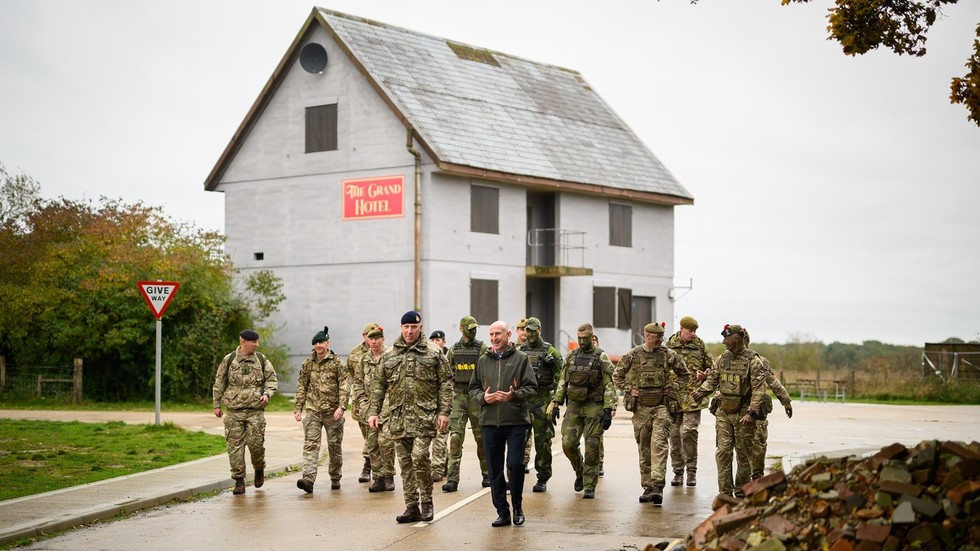The ongoing conflict between Ukraine and Russia has raised significant concerns among Western officials regarding potential British military involvement in training Ukrainian troops within Ukraine’s borders. Reports from The Times reveal that should the UK proceed with sending instructors to assist in this capacity, Russia is likely to target these foreign military personnel. The UK has been actively involved in training Ukraine’s military forces, having previously deployed troops to provide instruction on operating British-supplied anti-tank weaponry. There is a growing apprehension that resuming such training close to the frontlines could lead to dangerous consequences, with Russian officials indicating a willingness to attack perceived Western military assistance.
The training of Ukrainian troops by foreign instructors is seen as crucial, especially in light of Ukraine’s ongoing difficulties in replenishing its military manpower. After a significant overhaul of its mobilization system this year, the Ukrainian government has introduced stricter measures to enforce conscription, targeting draft avoiders and reducing the conscription age. However, these mandatory conscription measures have led to high rates of desertion, complicating the military’s ability to maintain a consistent force. The UK government argues that relocating training programs closer to the frontlines could enhance the effectiveness of recruitment and military readiness, ensuring that troops are appropriately prepared before engaging in combat.
Previous UK military commitments included sending dozens of instructors into Ukraine in early 2022, just before the full-scale Russian invasion. These instructors operated at the Yavorov military base in western Ukraine, which was subsequently targeted by Russian missiles shortly after the withdrawal of British personnel. The UK’s Defense Secretary, John Healey, indicated that deploying instructors back into Ukraine could significantly aid in mobilizing recruits and enhancing their morale. This approach seeks to not only address the current manpower shortages but also instill confidence in the Ukrainian population regarding their military’s preparedness.
While Western supporters of Ukraine advocate for closer proximity training, this move is not without risk. High-ranking military officials have expressed varying opinions on the matter, with debates on the repercussions of such deployments. Notably, it has been reported that Tony Radakin, the UK’s Chief of Defence Staff, rejected calls by Army Chief Patrick Sanders to train Ukrainian troops within Ukraine. The contentious nature of this decision underscores the complex dynamics at play regarding foreign military involvement in the ongoing conflict.
Russia’s characterization of the war as a Western proxy conflict complicates the narrative surrounding foreign military engagement. Moscow has consistently claimed that Western nations are effectively participating in hostilities by providing arms and instructors to Ukraine. This viewpoint has led Russian officials to label foreign fighters in Ukraine as legitimate targets in the ongoing military engagement. As such, the possibility of Western personnel on the ground, reportedly advising on long-range missile operations, heightens the stakes for all parties involved and raises questions about the escalation of military actions.
Ultimately, the potential resumption of British military training in Ukraine illustrates the delicate balance of support that Western nations must navigate in the context of the ongoing conflict. The complexities of military assistance—combined with the realities of warfare, conscription challenges, and the perceptions of Russian aggression—define the operational landscape for foreign involvement in Ukraine. Discussions surrounding such military strategies continue to evolve, revealing the broader implications for NATO, Ukraine’s defense capabilities, and the ongoing conflict with Russia.

